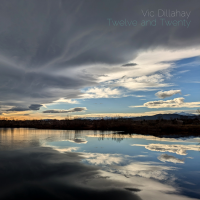A new survey by Orpheus Media Research reveals that music recommendation engines are gaining ground among consumers but are failing to offer them accurate results. According to ORM, 54% of respondents had used an engine, with only 40% of them using it daily or a few times a week.
While using an engine, 77% have discovered new music, and 92% continue to listen to that music. But here's the downfall: 40% of those surveyed said the results that engines deliver are only accurate 50% (or less) of the time.
Worse yet, of the consumers that actively look for new music, 22% said they find it almost impossible to find new, previously unheard of music.
What do consumers want?
43% of respondents said they would like a single, plug-in-my-tastes solution, and if it existed, they'd go there. Yes, sites like that sort of exist, but the trouble with most engines is that rather than creating a path forward for consumers, they send them walking in circles. Or rather, the consumers themselves walk in circles, as if lost in the words. Eventually, they will walk right back to where they started if left to their own navigation, which is the music they attempted to leave behind.
Additional Findings:
57% of the respondents indicated that they most often relied on radio or word of mouth to learn about new music; 14% said they relied on mainstream media
59% identify music as playing a key role in their social life
40% are interested in finding new ways to discover new music
40% have more than 1,000 songs (tracks) in their personal music library
82% identified radio as the greatest single influence of their music listening
82% feel that the music industry is doing an average to poor job in their ability to identify good music
44% rate their friends as good or excellent at identifying good music
Why Recomendation Is Broken:
Help! My iPod thinks I'm emo.
View more presentations from Paul Lamere
While using an engine, 77% have discovered new music, and 92% continue to listen to that music. But here's the downfall: 40% of those surveyed said the results that engines deliver are only accurate 50% (or less) of the time.
Worse yet, of the consumers that actively look for new music, 22% said they find it almost impossible to find new, previously unheard of music.
What do consumers want?
43% of respondents said they would like a single, plug-in-my-tastes solution, and if it existed, they'd go there. Yes, sites like that sort of exist, but the trouble with most engines is that rather than creating a path forward for consumers, they send them walking in circles. Or rather, the consumers themselves walk in circles, as if lost in the words. Eventually, they will walk right back to where they started if left to their own navigation, which is the music they attempted to leave behind.
Additional Findings:
57% of the respondents indicated that they most often relied on radio or word of mouth to learn about new music; 14% said they relied on mainstream media
59% identify music as playing a key role in their social life
40% are interested in finding new ways to discover new music
40% have more than 1,000 songs (tracks) in their personal music library
82% identified radio as the greatest single influence of their music listening
82% feel that the music industry is doing an average to poor job in their ability to identify good music
44% rate their friends as good or excellent at identifying good music
Why Recomendation Is Broken:
Help! My iPod thinks I'm emo.
View more presentations from Paul Lamere



























